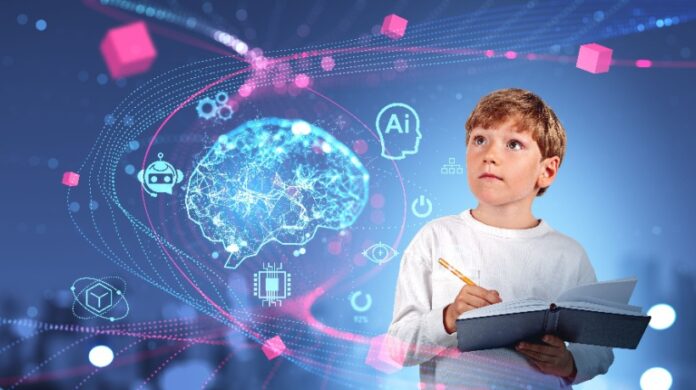In the age of rapid technological advancement, artificial intelligence (AI) is transforming various aspects of our lives, including education. AI holds the potential to revolutionize learning by personalizing instruction, enhancing student engagement, and providing educators with valuable insights into student performance. This article explores the role of AI in education, highlighting its benefits, challenges, and potential impact on the future of learning.
Personalized Learning with AI in Education:
One of the most significant advantages of AI in education is its ability to personalize learning experiences for individual students with help of proper ai school. Through sophisticated algorithms and machine learning techniques, AI systems can analyze vast amounts of data to understand each student’s strengths, weaknesses, and learning preferences. By tailoring content, pacing, and instructional methods to meet the unique needs of each learner, AI enables personalized learning pathways that optimize student engagement and achievement.
Enhancing Student Engagement:
AI-powered educational tools and platforms offer interactive and immersive learning experiences that captivate students’ attention and foster active participation. From virtual reality simulations to adaptive learning games, AI technologies create dynamic and engaging environments where students can explore complex concepts, collaborate with peers, and develop critical thinking skills. By making learning more interactive and enjoyable, AI enhances student engagement and motivation, leading to improved learning outcomes.
Efficiency and Automation for Educators:
In addition to benefiting students, AI streamlines administrative tasks and provides educators with valuable support tools to enhance teaching effectiveness. AI-driven grading systems can automate the assessment of assignments and provide instant feedback to students, saving educators time and enabling them to focus on individualized instruction. Furthermore, AI-powered analytics platforms analyze student performance data to identify trends, predict learning gaps, and inform instructional decisions, empowering educators to make data-driven interventions that support student success.
Addressing Learning Gaps and Accessibility:
AI has the potential to address learning gaps and promote inclusivity by providing personalized support to students with diverse needs and abilities. Adaptive learning systems can dynamically adjust the difficulty level of content based on individual progress, ensuring that all students receive the support they need to succeed. Additionally, AI-powered assistive technologies, such as speech recognition and text-to-speech tools, help students with disabilities access educational materials and participate fully in classroom activities, promoting greater equity and accessibility in education.
Challenges and Considerations:
While AI holds immense promise for transforming education, its implementation also presents challenges and considerations. Privacy concerns related to the collection and use of student data must be carefully addressed to safeguard student privacy and security. Furthermore, there is a need for ongoing professional development to ensure that educators have the necessary skills and knowledge to effectively leverage AI tools in their teaching practice. Additionally, equitable access to AI-enabled educational resources and technologies must be prioritized to prevent exacerbating existing disparities in educational opportunities.
The Future of AI in Education:
As AI continues to evolve, its potential to revolutionize education will only grow. Future developments may include advanced virtual tutors that provide personalized, one-on-one instruction, immersive simulations that enable students to explore complex concepts in virtual environments, and AI-driven content creation tools that generate customized learning materials tailored to individual student needs. By embracing AI as a powerful tool for enhancing teaching and learning, educators can unlock new possibilities and prepare students for success in the 21st-century workforce.
Conclusion:
Artificial intelligence has the potential to revolutionize education by personalizing learning experiences, enhancing student engagement, and empowering educators with valuable insights and support tools. While challenges and considerations exist, the benefits of AI in education are undeniable. By harnessing the power of AI, educators can create dynamic and inclusive learning environments that empower students to reach their full potential and thrive in an increasingly digital world.















